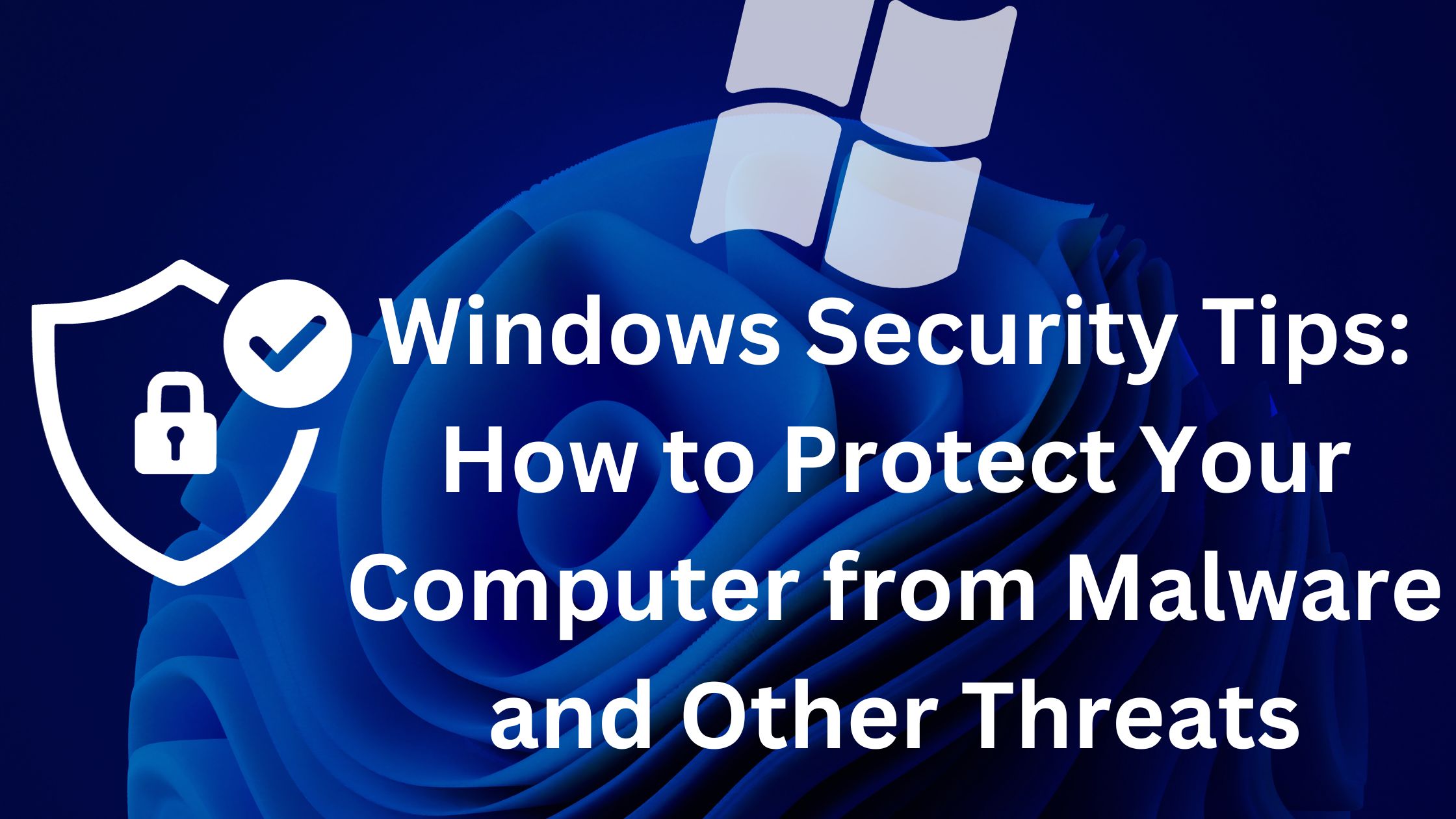Windows is the most popular operating system in the world, and as such, it is a prime target for attackers. That’s why it’s important to take steps to protect your Windows computer from malware and other security threats.
In this blog post, we’ll discuss some essential Windows security tips that you can follow to keep your computer safe.
- Keep your operating system and software up to date
Microsoft releases security updates for Windows on a regular basis. These updates patch known vulnerabilities in the operating system and software. It’s important to install these updates as soon as they’re available to help protect your computer from attack.
- Use a strong password and enable two-factor authentication
A strong password is essential for protecting your Windows account. Your password should be at least 12 characters long and include a mix of upper and lowercase letters, numbers, and symbols. You should also avoid using easily guessed passwords, such as your name, birthday, or common words.
In addition to using a strong password, you should also enable two-factor authentication (2FA) for your Windows account. 2FA adds an extra layer of security by requiring you to enter a code from your phone in addition to your password when logging in.
- Be careful about what attachments you open and what links you click on
Phishing emails are a common way for attackers to gain access to computers. Phishing emails are designed to look like they’re from a legitimate company, such as your bank or credit card company. The email will often contain a link or attachment that, when clicked, will install malware on your computer.
It’s important to be careful about what attachments you open and what links you click on in emails, even if they appear to be from a legitimate company. If you’re not sure whether an email is legitimate, don’t click on any links or open any attachments.
- Use a firewall and antivirus software
A firewall helps to protect your computer from unauthorized access to the internet and other networks. Antivirus software helps to protect your computer from malware.
It’s important to have both a firewall and antivirus software installed on your computer and to keep them up to date.
- Back up your data regularly
In the event that your computer is infected with malware or is lost or stolen, it’s important to have a backup of your data. This way, you can restore your data and get back up and running quickly.
There are a number of ways to back up your data, such as using an external hard drive, a cloud storage service, or a backup software program.
By following these essential Windows security tips, you can help protect your computer from malware and other security threats.
Here are some additional tips that you may want to consider:
- Use a password manager to generate and store strong passwords for all of your online accounts.
- Be careful about what software you install on your computer. Only install software from trusted sources.
- Disable macros in Microsoft Office documents unless you need them. Macros can be used to spread malware.
- Be careful about what information you share online. Avoid sharing personal information, such as your home address or phone number, on social media or other public websites.
By following these tips, you can help to keep your Windows computer safe and secure.
